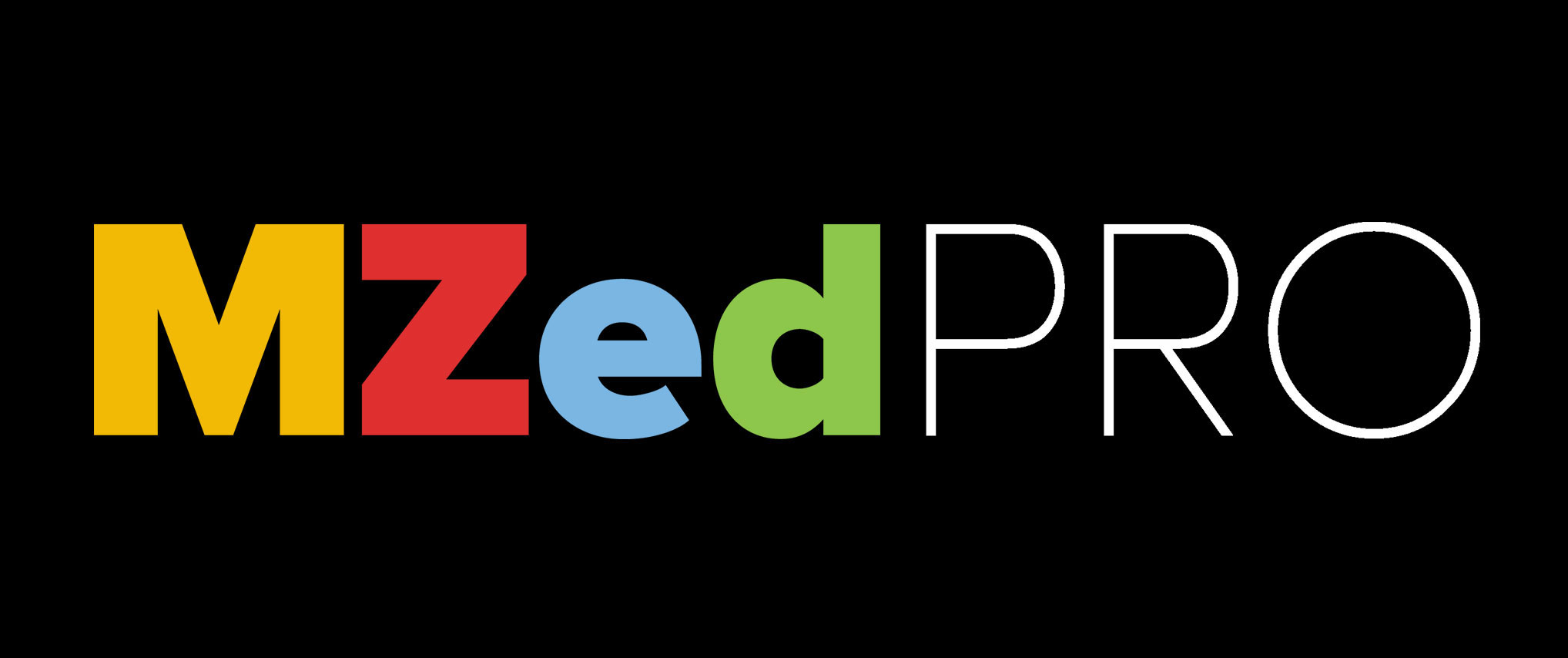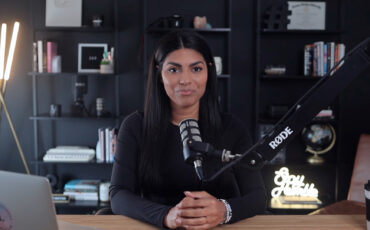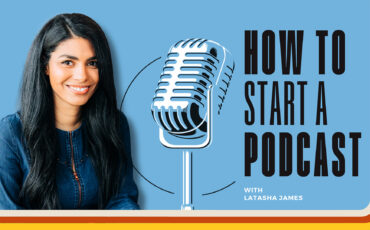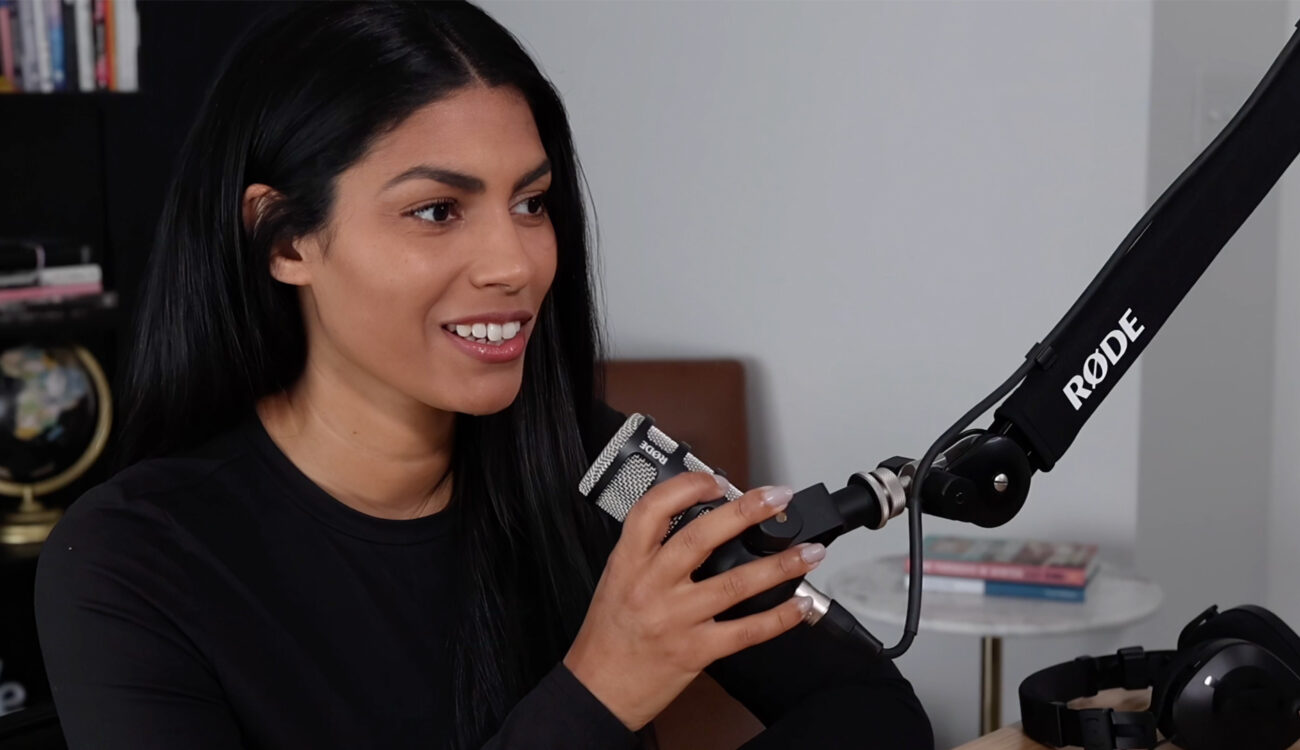
Interviews. They have existed for so long and are still a large part of podcasting, documentaries, portrait films, and corporate videos. Even if you just arrange a conversation with an expert while researching for your next script – you need the most meaningful answers you can get, don’t you? Let’s talk about the art of the interview and how to conduct it as effectively as possible.
Before I became a filmmaker, I used to be a journalist for several radio and media companies. My experience as an interviewer taught me a lot once I started filming documentaries and branded content. The knowledge of guiding a meaningful conversation is widely applicable in different areas, and yes – you can learn and practice how to do it.
It may seem like ‘What is there to learn?’ Talking to each other is easy and natural to humans. However, let’s admit it: We have all encountered a show or a podcast where the host talks all the time or the guest answers in one-word sentences. To avoid that, let’s revisit the basics of interviewing together with Latasha James, the host of “The Freelance Friday Podcast,” with thousands of listeners and viewers. In her MZed course “How to Start a Podcast,” she shares a lot of insight on the art of the interview.
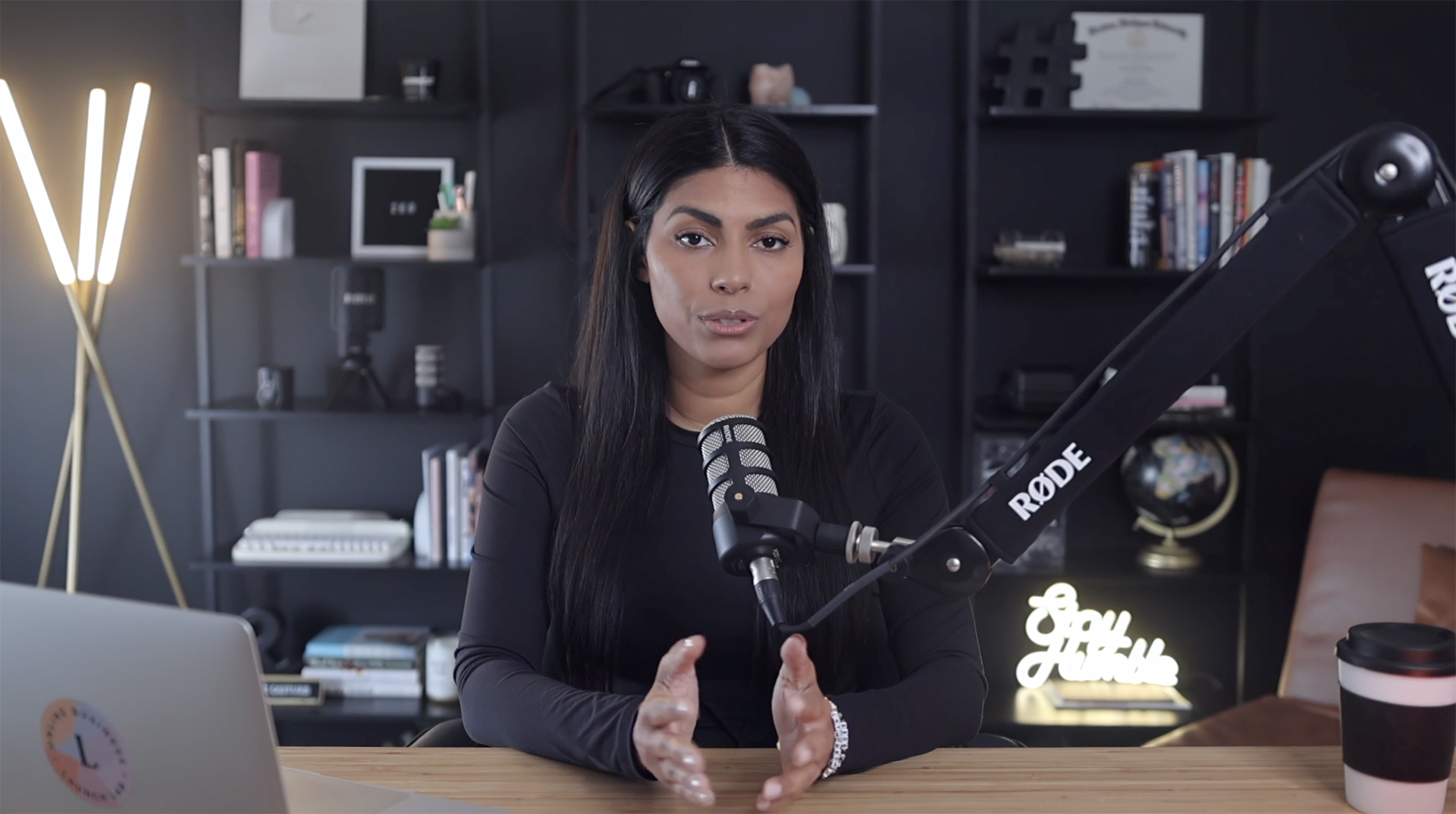
The art of the interview: Do your research
The first and foremost step of every interview—here Latasha and I fully agree—is to do your research beforehand. It is so basic, but some people don’t want to invest the time. Too bad! Knowing your guest’s context makes for a deeper conversation. Also, it will allow you to understand the things that they’ll want to focus on during the interview or what topics spark them with exciting insights.
How to Start a Podcast
Thus, Latasha suggests looking your guests up on social media, finding their biographies on their website, and reading their previous interviews if they have done some. Also, get accustomed to their work. If you plan to talk about a specific topic, I highly recommend that you get a glimpse into it. Let’s take as an example my recent CineD interview with the gamemaster Amy Vorpahl on writing and world-building of a tabletop RPG show:
Now, I’m not a stranger to the concept of DnD games and shows. Yet, personally, I’ve never written one and have no idea how to be a gamemaster. That’s okay – we want to hear about these things from Amy, not from me. I don’t have to become an expert in her field. What I did in the research phase, though, is watch the released episodes of the show on YouTube to understand Amy’s role in them and how they work, follow Amy on Instagram to feel her vibe, and read about her previous work and experience—combined with my experience as a screenwriter, that allowed us to dive deep into the topic instead of using the interview time for more general questions.
Prepare the questions
Another obvious yet important tip for interviews is to prepare your questions beforehand. When Latasha does an interview, she likes to share an outline of the episode with her guests a few days in advance. That gives them a general idea of what topics they’ll discuss and how the flow of conversation will go.
That said, I always explain to them that the show is conversational and that I prefer that they don’t prescript their responses.
Latasha James, a quote from her MZed-course
Personally, I never send prepared questions to my interview partners in advance unless it’s an interview for a corporate video, where clients have to come up with the best lines for marketing purposes. In other cases, I may outline a raw structure of the upcoming conversation but without much detail. In my experience, when people know the exact questions, they always prepare the answers. The problem is, during the interview, they will try to recite those answers and even get nervous in case they forget some specific words. Also, in this scenario, the interview will lose a relaxed vibe and authentic tone.
Once you prepared the questions, print them out, put them on the interview table, and… forget about them. We’ll come back to this point in a minute.
What if your guest is nervous?
Latasha explains in her course that as a podcast host, you should be mindful of your guest’s interview experience. The lack of it may even be the reason not to invite them. However, in reality, we often have to interview inexperienced interviewees, and it is only natural that they might become nervous. How do we ease them into it? Here are a few tips:
- Host a pre-production meeting with them, if possible, suggests Latasha James. This will allow you to get to know each other on a more personal level, agree on the planned topics, and also show them how video and audio gear work so that it doesn’t scare them on the day of the interview.
- Warm-up. As it is rarely possible to meet in advance, use the first 5-10 minutes of the interview time to chat off the record. (Don’t forget to mention that the recording is not on, so your guest can ask any questions or share their thoughts without the fear of it being broadcast).
- Think of some icebreaker questions in advance. A simple “How are you?” doesn’t always work. Personally, I prefer something relaxed and slightly funny, like: “How did your day start?” or “What is your favorite choice of breakfast?”
- Acknowledge their feelings and show that you can relate to them. I’m also always nervous before interviews, regardless of how many I’ve already conducted. For some guests, it’s important to say that out loud.
- Remind them that the interview will be edited (unless it’s a live broadcast). Tell your guest something like: “You can always stop, gather your thoughts, and begin again. Mistakes are okay.”
- Don’t forget that your voice in interviews is also a tool to create an atmosphere. Speak at the pace you want the answers to be given. Slow down if the guest talks too fast. Lower your voice if they become too agitated. Smile – that’s probably the most important one.
BUT! There is an important “Don’t.” Don’t use your actual interview questions as icebreakers. In fact, avoid the initial topics of the conversation in the warm-up phase. Sure, people will gladly jump on them off the record. However, once you start the recording, a mental block may appear in their heads: “Oh, but I already told you that. Maybe I should come up with another answer.” It’s a psychological reaction and a normal thing. We don’t want to repeat ourselves, so our responses suddenly become drier and less elaborate the second time around.
Phrase your questions
So, how to phrase your questions during the interview? In my experience, it depends on the guest. Some don’t need any questions at all. Just give them an input line, and off they go! But of course, there are some basic guidelines you can always keep in mind.
First, try to avoid close-ended questions. (The ones that can be answered with “yes,” “no,” or “maybe”). Always go for “what,” “why,” “how,” and so on instead.
Secondly, don’t hesitate to give your interviewee some context whenever it’s needed: Anything from telling a story to showing a video clip. For instance, in the Emmy-winning documentary series “Beckham,” the director shows his interview partners specific moments from different football matches and records the stories or feelings behind them.
Thirdly, if the answer is too short and “on the surface,” don’t rush to follow up with the next question. Wait. Don’t break the pause. This will non-verbally communicate to your guest so they can continue and elaborate on the topic.
In videos and documentaries, you also have the choice of whether your questions will be heard in the final interview or not. It’s okay if they do. If not (and that’s the most common approach), prepare your guest beforehand. I normally explain this moment and ask them to talk in full sentences, and I always include my question in the answer. For example: “If I ask what you ate for breakfast, please don’t answer “Eggs,” but rather: “For breakfast today, I ate eggs.” Interestingly enough, this approach also helps to dive into the matter more thoroughly.
The art of the interview is listening
In my opinion, the most important skill for every interviewer is attentive listening.
Latasha explains in the course that one common mistake many hosts make is that they stick too closely to their prepared questions. What you really want to do, though, is use your questions as openers and then follow up on the guest’s responses.
Often, you will realize on the go that your guest covered several questions at once and then also mentioned something new and exciting that is definitely worth diving into. It would be sad if you missed this opportunity just because it wasn’t on the list.
Another tip is always to give your guest the time to expand on their story whenever possible. It is better if they speak a little longer than intended than not have them speak enough. After all, you can always cut down your interview.
Let’s turn the tables now! What other tips and methods do you use while conducting an interview? How do you ensure that your conversation for a podcast or a film will be meaningful? Please share your experience with us in the comments below.
Feature image source: Latasha James / MZed.
Full disclosure: MZed is owned by CineD.



